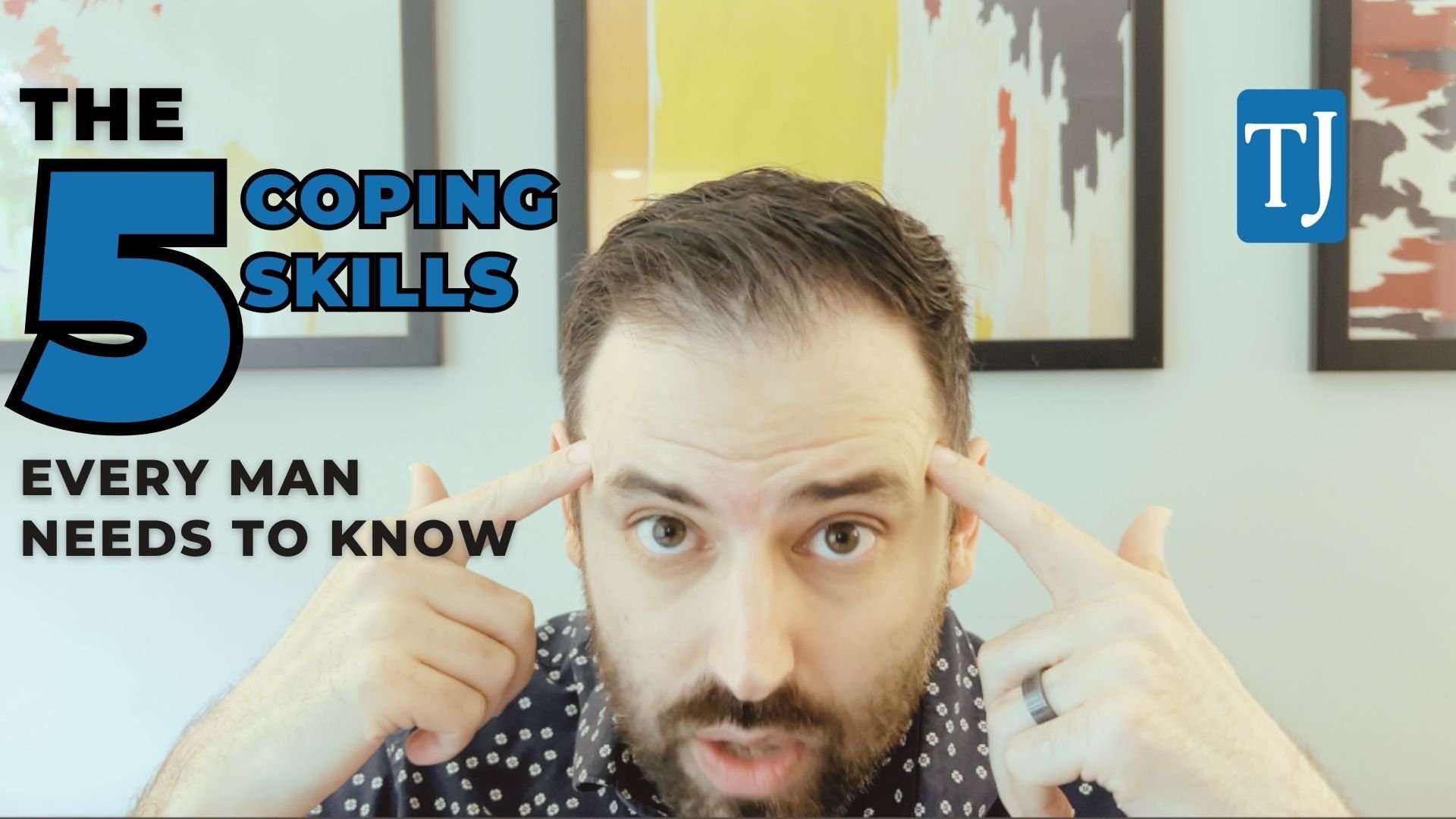The 3 Questions For Men to Ask Themselves When Angry
Your palms and forehead are sweating, your heart is starting to beat faster in your chest, and your stomach feels like it’s churning. You know that you’re angry and you feel like you’re about to lose it.
So what do you do now?
There is a moment (sometimes brief) between physically feeling anger and actually taking action.
How you handle that moment can prove to be the difference between acting out in anger in ways you’ll regret afterwards, and finding a way to regulate yourself and act in ways that are in your best interest.
In that moment between the feeling and the action you can answer these three questions for yourself, you’re going to be in a much better place:
Does Anger Fit The Facts?
Here are two variations on the question:
Does it make sense to be angry?
Is your anger justifiable?
This is the absolute first question to ask yourself. Take a moment and think about whether what you’re feeling makes sense, and fits the facts. So often when people struggle with anger, they get upset at being upset because they think they have no reason to feel what they are feeling. But take a moment to look inside and see if there are any reasons why your anger could make sense and be justifiable.
Give yourself the most generous interpretation possible.
You may initially be upset that you’re upset, but, would you understand if a friend was upset about something similar? Can you understand - given your own context and history how you could be upset about this?
If you take a moment to pause and look inside yourself, your anger probably does on some level make sense, and recognizing and acknowledging this is a big first step.
When you tell yourself your anger doesn’t make sense, you’ll find yourself doubly frustrated. You’ll be irritated at the external situation, but also irritated at yourself as well for getting frustrated when you’ve convinced yourself there’s nothing to get frustrated about.
Again - take a moment to understand that on some level, it does make sense and is understandable that someone, given your own history and context, could feel angry in this moment.
When we try to criticize our own Anger and tell our Anger it’s wrong, doesn’t make sense, or doesn’t fit the facts, our Anger doesn’t magically go away. Instead, it actually grows.
Our Anger is trying to tell us something, and it’s important to listen to it and recognize it’s trying to tell us something important about ourselves. Oftentimes just recognizing and acknowledging that on some level it makes sense that we’re angry can help.
2. What Is It That I Want?
The next question after you understand how your anger fits the facts is to ask, what it is that I want?
When you ask this question, it’s important to keep the focus on you.
It’s not going to help if you direct your answer at another person. Here are some responses to ‘what is it that I want’ that keeps the focus on other people:
I want them to shut the hell up.
I want her to start respecting me.
I want him to stop acting like that.
I want them to listen to me when I’m talking to them.
See how each of those statements is about the other person. It could be true that you want them to shut the hell up, but that's really just scratching the surface of what’s going on inside of you. Keep the focus on you. Here are some statements about ‘what I want’ that keep the focus on you:
I want to be seen and heard.
I want to feel like I’m valued and appreciated.
I want to be able to have the ability to make choices about my own actions and maintain some sense of ownership and independence.
I want to feel like I’m helping the situation in some way.
Can you feel or hear or sense how those second group of statements are different than the first group? Focusing on how you want other people to change is going to keep you angry, and likely make other people upset and frustrated as well. For starters, you can not control other people and their actions, and so if you answer the question with ‘what is it that I want’ by making it about others, you’re going to feel out of control. But getting clarity on what it is that you want deep down is going to naturally open you up to question three:
3. What Behavior Is Going to Get Me What I Want?
Now that you know what you want, the next step is to clarify what behavior is actually going to help you get what you want.
Unfortunately, when we are angry we can find ourselves engaging in behavior that is going to get us the exact opposite of what we want without even realizing it.
If you’re feeling Angry because you feel like you’re not appreciated - and then you find yourself yelling at your partner and children…they are probably not going to respond by showing their appreciation for you. Your Anger may fit the facts, but your behavior in the situation is not going to help you get what it is you truly want - which is to feel appreciated.
If you're feeling Angry because you feel like you have no sense of independence and autonomy at work - and then you find yourself yelling at your boss…they are probably not going to respond by giving you more slack and independence to work with. Your Anger may fit the facts, but again, your behavior is not going to get you what you truly want - which is a sense of independence.
Again, the goal is not to try to get rid of Anger. Anger, like all emotions, has a healthy place in our lives. But…
If your actions are no longer getting you what you want, you need to evaluate what response will do that.
Oftentimes the most productive answer to get what you want is to begin to develop the ability to have honest, vulnerable conversations with others. The key here is for the conversations to be both honest and vulnerable. It may be honest to say “You need to shut up when I’m talking to you!” That’s pretty honest! But, it’s really not vulnerable in any way. Another way to think about vulnerability is - are you sharing things about yourself that feel like a little bit of a risk? Are you opening up, sharing flaws, sharing your humanity, sharing what you’re struggling with, etc?
Again, it may be honest to say, “You need to shut up when I’m talking to you!” But that’s going to be met with tension and resistance and is not going to get you what you want.
To share with honesty and vulnerability might look like, “I feel unseen and honestly a little unappreciated when you talk while I’m talking. Can we both work on waiting until the other one is finished speaking? It would actually make a big difference to me, and I would feel more connected to you”.
You may be thinking - nobody talks like that! And you’re right, most people don’t communicate with that level of honesty, intentionality, and vulnerability. But remember, the thing to keep coming back to is - what behavior is going to get me what I want?
If what you really want and desire is to be seen, heard, and feel appreciated, that second example is going to get you a lot closer than the first example.
So again, sometimes the behavior is clarifying our communication, sometimes it’s not - but the key thing to ask yourself is, what behavior is going to get me what I want?
Another thing that is going to help you get what you want is to be able to find a way to calm down when you are angry. Even if you can just take the intensity of your feelings down 10 or 20% that can be the difference between the situation escalating, or resolving.
Here are 5 Coping Skills that Every Man Needs to Know that will help you calm when anger starts to take you over, so you can think clearly about what behavior is going to be you what you want. And it’s absolutely free.








